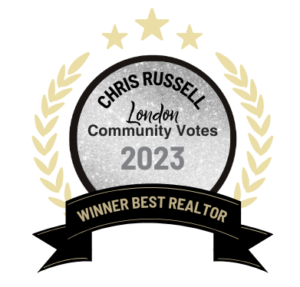The Impact of Overpricing Your Home, Understanding the Listing Price:
As sellers, one of the crucial decisions you’ll make is determining the listing price of your home. While it’s natural to aim high, pricing your property excessively can hinder its sale. Overpricing often results in extended market time, reduced buyer interest, and ultimately, a lower final sale price. Here’s why finding the right balance is crucial:
- Realistic Sale Price: One of the hardest parts of pricing your home is disregarding your emotional attachment. Your listing price should align with the current market value, considering factors like location, comparable sales, property condition, and local market trends. Striking a balance between maximum profit and market competitiveness is key to attracting potential buyers. When pricing your home keep in mind that listing the home 10% below the market value will attract 75% of buyers, while listing the home 10% above the market value will ensure 45% of buyers do not show interest in your property.
- Impact on Buyer Interest: Overpriced homes may deter potential buyers who perceive them as out of their budget, or not offering adequate value. This could lead to fewer showings and longer time on the market, diminishing the property’s appeal. Remember that the value of your home is what a buyer is willing to pay for it, and this amount changes constantly as the market conditions change. It doesn’t matter if your house was worth significantly more a few months or years ago, if the market shifted then your house could be worth more or less because of many factors like inventory, interest rates, inflation or simply buyer perceptions. Pricing your property too high all but guarantees it will take longer to sell, sometimes much longer. Instead of selling your property in just a few weeks, you could have to go through months of showings and open houses. Even worse the statistics show that the longer a property is on the market the less it sells for in the end. In fact, it will usually sell for less than what it would have fetched if it had had a more realistic starting price to begin with.
- Activity vs Timing: A common question home buyers ask when seeing a house is, “how long has this home been on the market?” When a seller first lists their property, they are in an advantageous position. The new listing creates a wave of interest as buyers scramble to be the first ones to view it, and potentially make an offer. As time goes on, interest begins to drop off and the sellers quickly learn that the “days on the market” works against them. Statistics show that the longer a home is on the market, the less it will sell for. Overpriced houses also usually sell for less than if the home had initially been listed with a more realistic starting price.
Determining the Right Sale Price
Several factors contribute to establishing the ideal sale price for your home:
Comparable Sales
Analyzing recent sales of similar properties in your area provides valuable insights into market trends and helps gauge a competitive yet realistic price range for your home. It is important to understand that there is no exact number and that the value of your home is a range. In the end, if you receive multiple offers on your home. The value of your home is the offer you accept, even if it isn’t the highest offer. Banks and other lending institutions will also analyze these sales to determine how much they are willing to lend to a qualified buyer.
Property Condition and Features
The condition, amenities, and unique features of your home influence its value. Highlighting these effectively can justify your chosen price to potential buyers.
Local Market Dynamics
Understanding local market dynamics, such as supply (available inventory) and demand, economic conditions, and neighborhood trends, plays a pivotal role in setting an attractive and feasible price for your home. Always remember that the market (available inventory, demand, rates, etc) dictates the price.
Comparable Homes That Failed to Sell
Looking at similar homes in your neighborhood that failed to sell will allow you to avoid pricing your home at a level that would not attract buyers.
Our Expertise for a Successful Sale:
Pricing a home correctly is a blend of art and science. It involves your Realtor analyzing the relevant data and applying it correctly to your property. Trust our experienced team to assist you in accurately pricing your home. We offer comprehensive market analyses, leveraging our expertise to ensure your property is competitively priced for a successful sale.
Ready to List?
Contact us to discuss pricing strategies tailored to your property. Let us help you achieve the best possible sale price in today’s dynamic real estate market.
Analyzing recent sales of similar properties in your area provides valuable insights into market trends, and helps gauge a competitive yet realistic price range for your home. Banks and other lending institutions will also analyze these sales to determine how much they are willing to lend to a qualified buyer.
